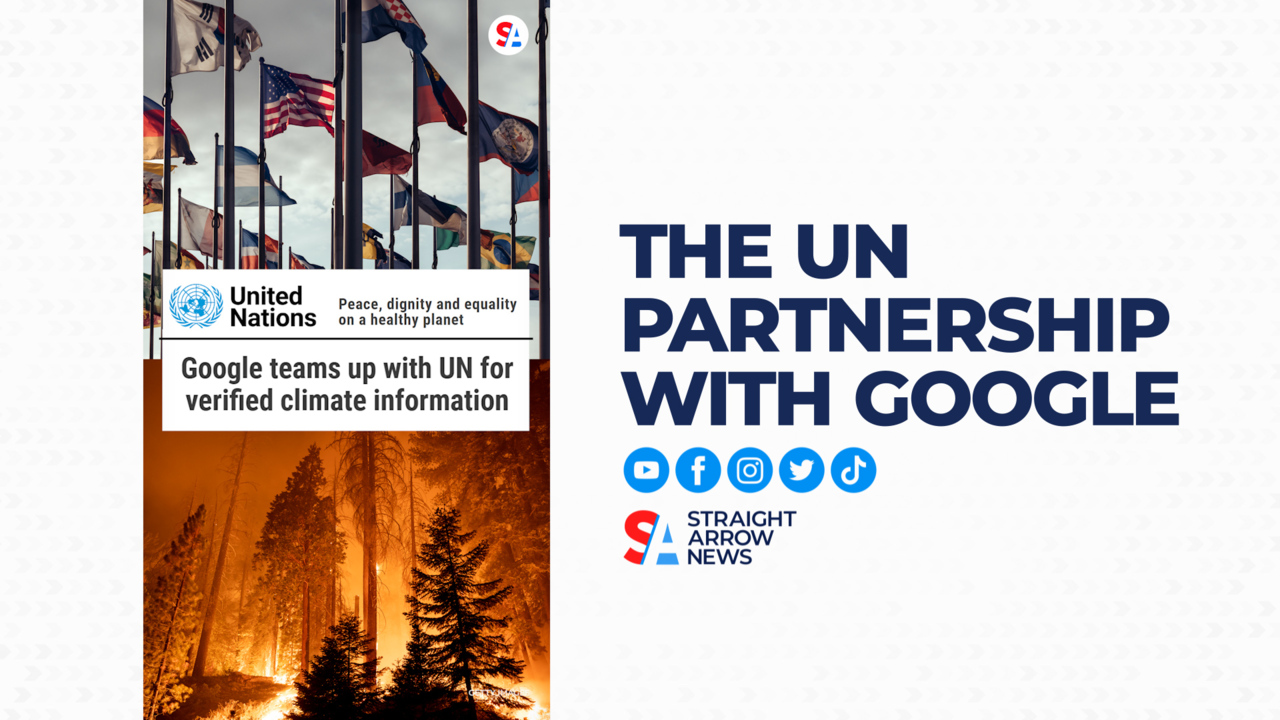
MAHMOUD BENNETT:
IN PART 1 WE TALKED ABOUT HOW THE OPEN ACCESS TO OPINIONS AND ONLINE RHETORIC – WHETHER ITS PARTIAL TRUTH OR MIXED IN WITH HATE AND LIES- HAS PROMPTED CALLS BY WORLD LEADERS TO CRAFT THE TYPE OF INFORMATION THAT GOES OUT
ON THE ISSUE OF CLIMATE CHANGE – THE UNITED NATIONS HAS ESTABLISHED A PARTNERSHIP WITH GOOGLE
MELISSA FLEMING:
WE PARTNERED WITH GOOGLE FOR EXAMPLE. IF YOU GOOGLE “CLIMATE CHANGE” YOU WILL AT THE TOP OF THE SEARCH YOU WILL GET ALL KINDS OF UN RESOURCES
MAHMOUD BENNETT:
WHILE GOOGLE STATES IT DOES NOT CONTROL THE CONTENT OF WEBSITES – THAT FIRST PAGE OF IT’S SEARCH RESULTS IS WHERE 90% OF USERS CLICK AND STAY – THAT’S BASED ON A 2013 STUDY CONDUCTED BY CHITIKA INSIGHTS
MELISSA FLEMING:
WE STARTED THIS PARTNERSHIP WHEN WE WERE SHOCKED TO SEE THAT WHEN YOU GOOGLED CLIMATE CHANGE – WE WERE GETTING INCREDIBLY DISTORTED INFORMATION RIGHT AT THE TOP
MAHMOUD BENNETT:
GOOGLE IS BY FAR THE GLOBAL DOMINANT SEARCH ENGINE OF CHOICE
AND EXPERTS SAY IT’S WITHIN ITS RIGHT TO FILTER DATA IN COMPLIANCE WITH THE LAW AND ITS OWN POLICIES
BUT THIS PARTNERSHIP WITH THE UNITED NATIONS SHOWS HOW IT CAN SHAPE THE INFORMATION YOU SEE.
MELISSA FLEMING:
SO WE ARE BECOMING MUCH MORE PROACTIVE. WE OWN THE SCIENCE AND WE THINK THAT THE WORLD SHOULD KNOW IT










